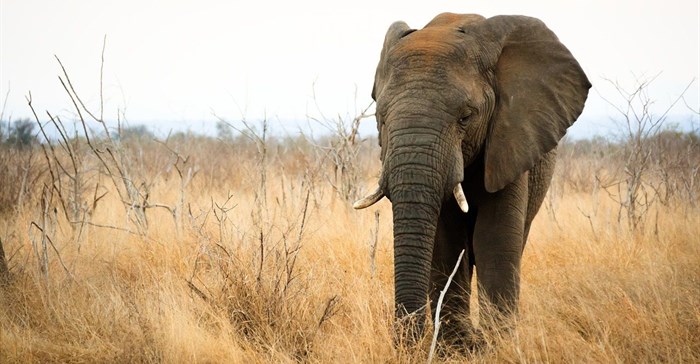Corruption fuelling ivory trade in central Africa: study

The study by wildlife trade monitoring network Traffic said weak governance, corruption and shifting trade dynamics are seriously undermining efforts to control ivory trafficking throughout Cameroon, the Central African Republic, Congo-Brazzaville, the Democratic Republic of the Congo and Gabon.
It found that ivory trade in the region is shifting from an open domestic retail market to underground transactions, with a focus on the export of raw ivory to foreign markets, especially China.
"The report's findings show that open ivory markets in the region are disappearing, largely due to increased enforcement and competition with underground criminal networks," Traffic said. "In its place, high-level corruption and poor governance are helping enable sophisticated international trade."
Current legislation in the five central African countries prohibits domestic ivory trade, with the exception of Cameroon. However, according to the report, there is a "loose and ambiguous interpretation of the law in all countries" and enforcement efforts are hampered by corruption often involving high-level government officials.
It also blamed insufficient human and financial resources, mismanagement and weak political will. The report said a common theme heard throughout the region were allegations concerning Chinese citizens operating within organised criminal networks as key actors in the ivory trade.
In 2014/2015, 80% of foreign buyers were ethnic Asians, especially Chinese, but also Malaysians and Vietnamese. It is estimated that about 20,000 elephants are killed every year for their ivory tusks, leading to a steep decline in numbers. The international trade in ivory was outlawed in 1989.
Traffic said the report, supported by conservation organisation the WWF, is the first comprehensive assessment of ivory trade in the region in nearly two decades. Investigators posed as buyers at ivory markets and workshops throughout the Congo Basin in 2007, 2009, 2014 and 2015.
Paulinus Ngeh, director of Traffic in central Africa, said regional governments must ramp up efforts to implement their commitments to stop elephant poaching and illegal ivory trade.
Source: AFP
Source: I-Net Bridge

For more than two decades, I-Net Bridge has been one of South Africa’s preferred electronic providers of innovative solutions, data of the highest calibre, reliable platforms and excellent supporting systems. Our products include workstations, web applications and data feeds packaged with in-depth news and powerful analytical tools empowering clients to make meaningful decisions.
We pride ourselves on our wide variety of in-house skills, encompassing multiple platforms and applications. These skills enable us to not only function as a first class facility, but also design, implement and support all our client needs at a level that confirms I-Net Bridge a leader in its field.
Go to: http://www.inet.co.za






















